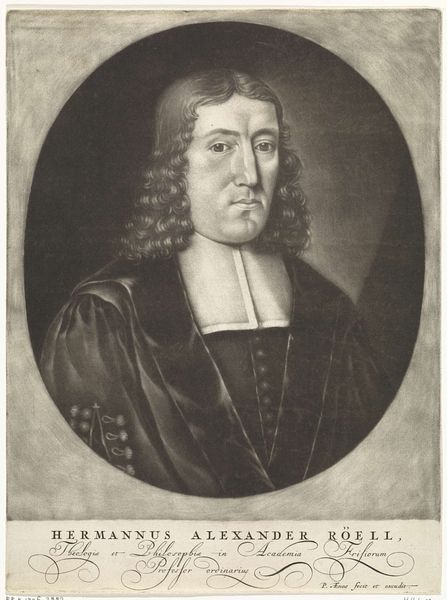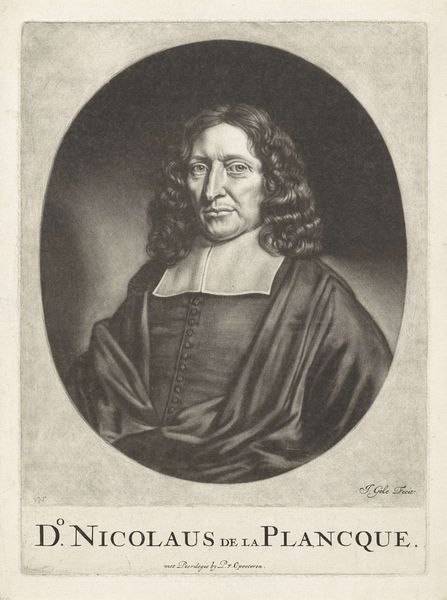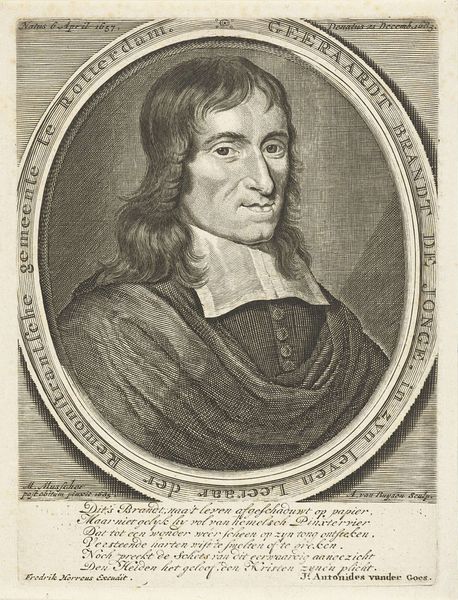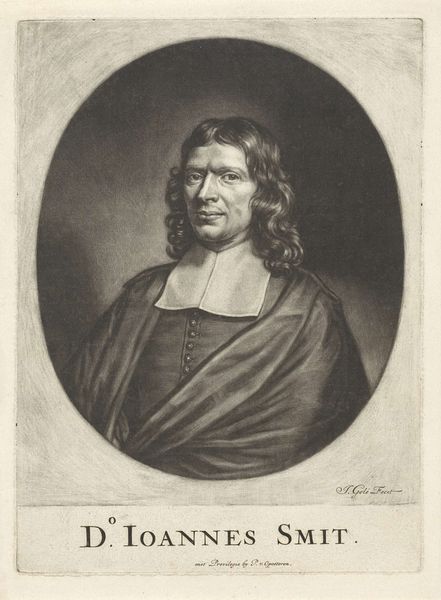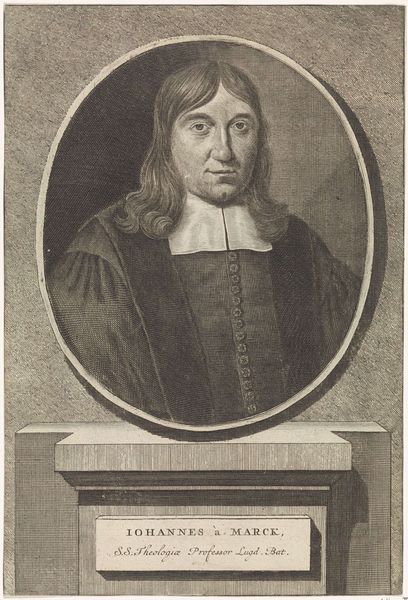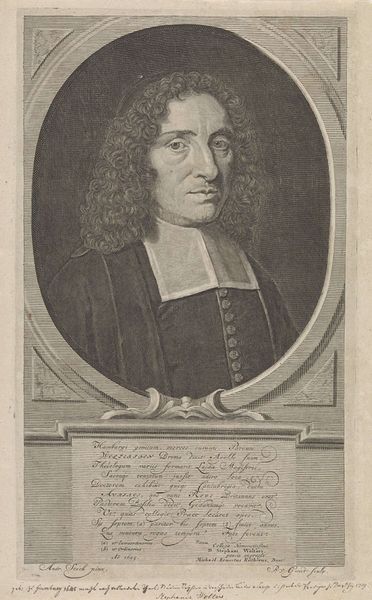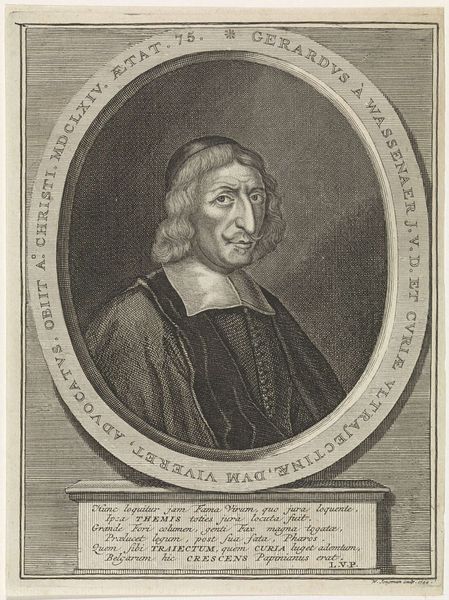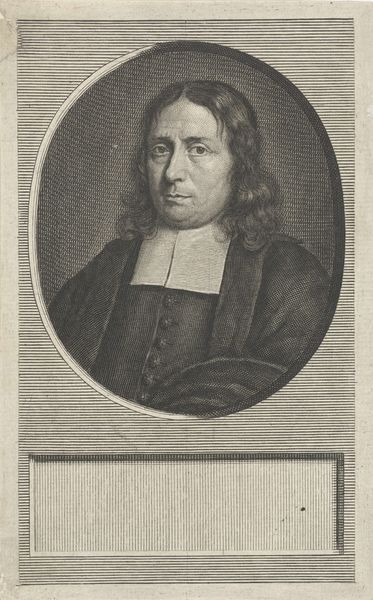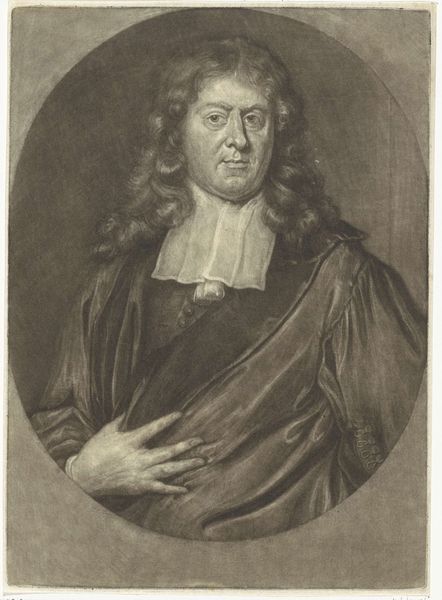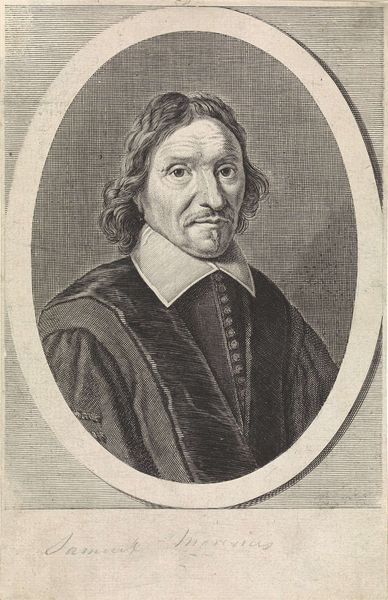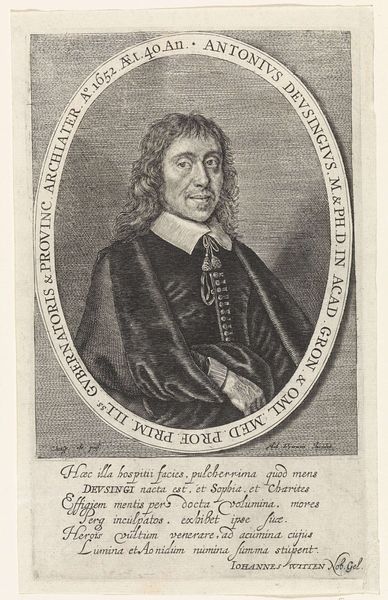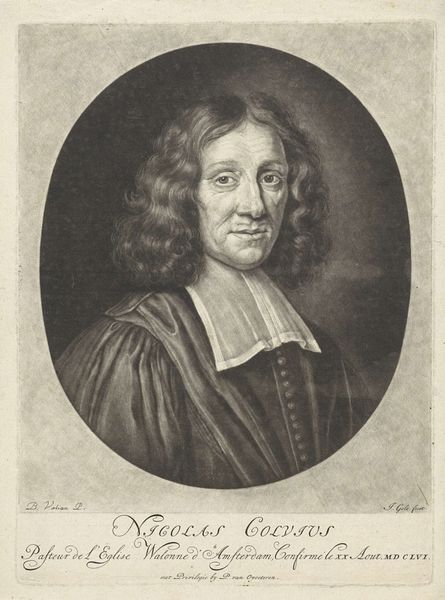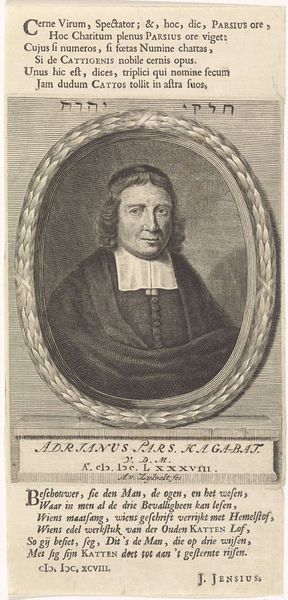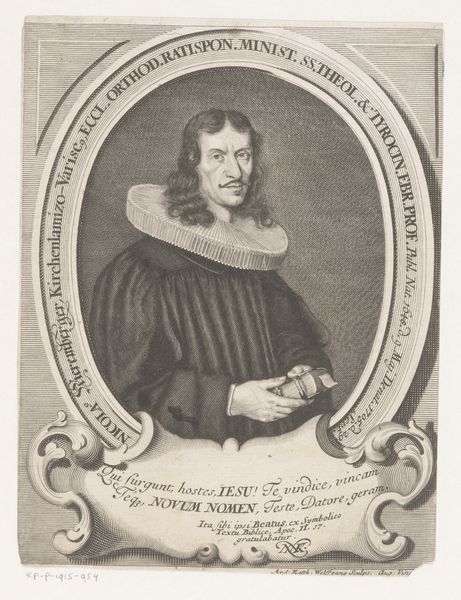
engraving
#
portrait
#
baroque
#
old engraving style
#
pencil drawing
#
history-painting
#
engraving
Dimensions: height 283 mm, width 213 mm
Copyright: Rijks Museum: Open Domain
Petrus Aeneae created this portrait of Ulricus Huber as a mezzotint, a printmaking technique, sometime around 1692. The process begins with a copper plate, roughened with a tool called a rocker to create a surface that would print as solid black. The image is then created by selectively burnishing or scraping areas of the plate to create lighter tones. The smooth areas hold less ink, resulting in a range of shades from dark to light. This tonal control is what gives the image such a velvety quality, very different from the stark lines of an etching or engraving. Mezzotint was especially popular for portraiture because it allowed for subtle gradations of tone, ideal for capturing the nuances of a face. Yet the labor involved in preparing the plate was considerable, and the technique demanded high skill, tying it to a complex history of craft and fine arts. The printing press made images widely accessible, but the art of mezzotint remained a specialist pursuit.
Comments
No comments
Be the first to comment and join the conversation on the ultimate creative platform.
